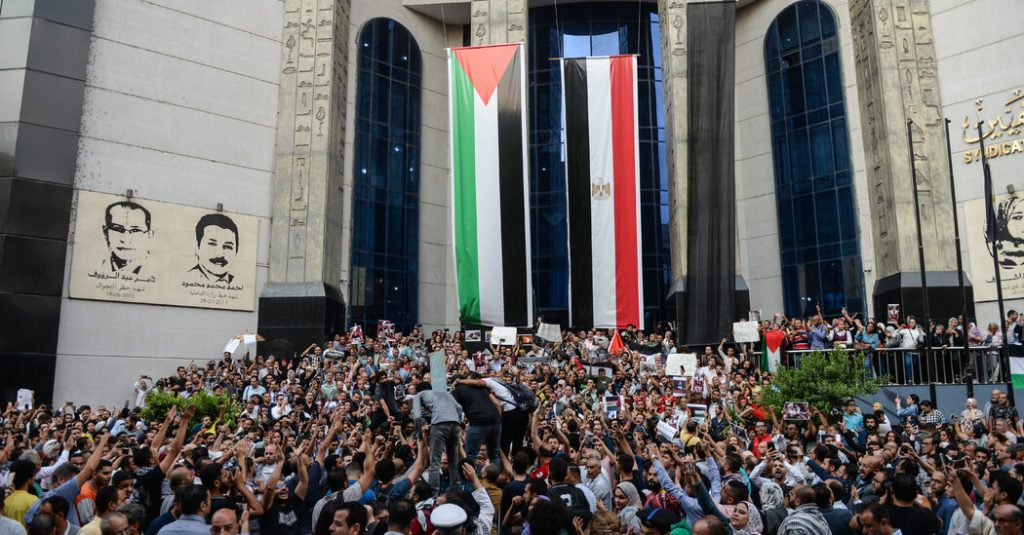The Israeli-Palestinian conflict has deeply impacted governments across the Middle East, including Egypt, where there are constant denunciations of Israel over the war in Gaza. However, despite the government’s outward support for Palestinians, there is internal repression of protests and dissent. This pattern has been seen in other Arab countries as well, where citizens’ outrage towards Israel and their own governments’ complicity has led to arrests and crackdowns on activism. The governments of countries like Morocco, Saudi Arabia, the United Arab Emirates, and Jordan have all displayed hypersensitivity to any opposition related to the conflict.
The struggle for justice for Palestinians has long been linked to the fight for greater rights and freedoms in Arab countries. Israel is viewed as a symbol of oppression and authoritarianism, and protests in support of Palestinians often lead to government backlash. Activism surrounding the Palestinian cause is particularly thorny for Arab autocracies because it can quickly turn against them, threatening their grip on power. The recent war in Gaza has reinvigorated public outrage in countries like Bahrain, Morocco, and the United Arab Emirates towards their governments’ normalization efforts with Israel.
While some Gulf Arab states have emphasized the importance of their agreements with Israel for regional dialogue and security, the broader Arab public remains hostile or indifferent towards Israel. This has led many to view the signing of normalization agreements as a reflection of authoritarianism. The practical benefits of ties with Israel, such as security cooperation and containment of militant threats, have incentivized many Arab governments to maintain these relationships despite public opposition. Critics argue that if Arab citizens had the opportunity to democratically express their views, they would not support normalization with Israel.
Despite popular anger towards Israel and their own governments, many Arab leaders are trying to balance public sentiment with their national security considerations. Protests and dissent related to the Israeli-Palestinian conflict have varied across Arab countries, with some governments allowing demonstrations, while others have cracked down on protesters and activists. The suffering in Gaza has complicated matters for Arab governments, as protests implicate them in the eyes of their citizens. The chants supporting Palestinians have become sensitive territory for many regimes, leading to conflicting responses from authorities.
While some protests have been repressed and activists arrested, the ongoing demonstrations across the Middle East suggest that public support for Palestinians remains strong. Popular sentiment against normalization with Israel has led to arrests in countries like Morocco, where citizens refuse to accept ties with Israel against their will. The future of peace in the region remains uncertain as long as there is a disconnect between the governments’ actions and the desires of their people.


